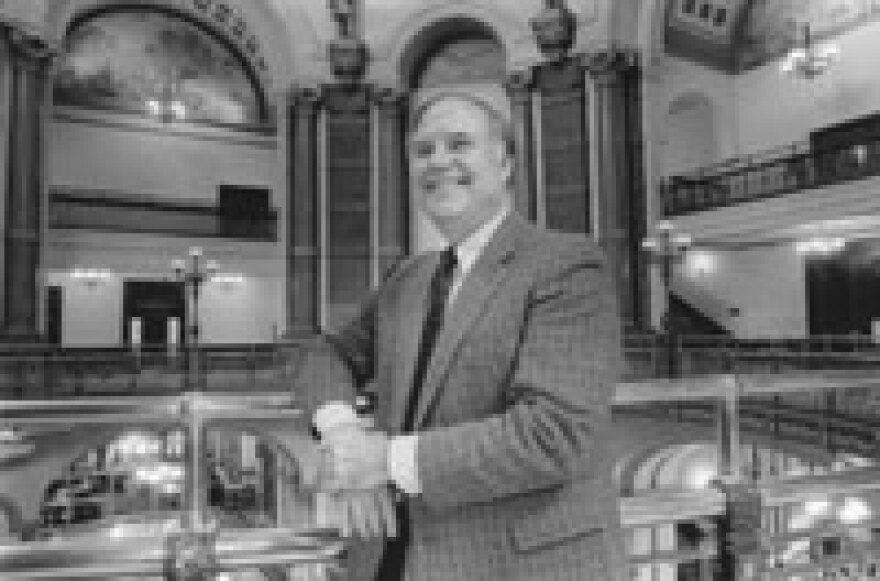With the New Year comes a New Era in Illinois state government. When the 93rd General Assembly takes office on January 8, Democrats will control the Senate for the first time in a decade. Five days later, Rod Blagojevich will be inaugurated as the first Democratic governor in 26 years, bringing a commitment to change the way things are done in Springfield.
If the new legislature and the new governor really want to make their mark, a daunting trio of nettlesome issues will test their ingenuity and weigh their mettle. The long-standing challenges to policymakers include education finance, the criminal justice system and Illinois’ tax structure. Here’s a look at each:
• School funding. Revamping the way Illinois pays for elementary and secondary education has been on the to-do list for decades. The problem is well-known: Because local school districts rely so heavily on property taxes, resources vary dramatically among districts, making it difficult for some to provide an adequate education for their students. The solution also seems obvious: Replace some local property taxes with state dollars, thus increasing the state’s share of the costs and narrowing the resource gap between property-rich and property-poor districts.
What has been lacking for decades, however, has been the political will to enact the swap. Governors and legislators alike generally have been too timid to endorse the state tax increase that would be needed to pay for the swap.
Reform proponents came close in 1997, when Gov. Jim Edgar proposed a 25 percent hike in income tax rates to replace $900 million in school property taxes and provide $600 million to boost spending levels for poor districts. The legislation cleared the Democratic-controlled House despite opposition from House Minority Leader Lee Daniels, an Elmhurst Republican, but Senate President James “Pate” Philip, a Republican from Wood Dale, refused to allow senators to vote on the measure, which Edgar and others were sure would have passed.
Could 2003 be the year for school funding reform? To be sure, significant obstacles exist. The state’s fiscal condition is some $1 billion worse, and Blagojevich has vowed not to raise taxes.
But Daniels and Philip, the chief roadblocks in 1997, will be gone from GOP leadership. The Educational Funding Advisory Board and its chair, former state schools superintendent Robert Leininger, are determined to push for property tax cuts and a $1,000-plus boost in the guaranteed per-pupil funding level. Their ideas are endorsed by Network 21, a coalition of business, labor, education and civic groups that wants to improve educational quality in the state’s lowest performing schools, which generally have fewer resources than schools that do better in standardized testing.
Perhaps most importantly, though, four out of every five school districts expect to operate in the red this year, including some in relatively affluent suburban areas. Such widespread distress could help convince lawmakers that the time for temporizing is over.
• The Criminal Code. Since Gov. George Ryan declared a moratorium on executions in January 2000, the spotlight has been on the state’s deeply flawed system of capital punishment. The death penalty debate has over- shadowed broader concerns about the state’s criminal justice system, from the laws themselves through police and courtroom procedures to sentencing and prison operations.
In May 2000, the governor named Deputy Gov. Matthew Bettenhausen to head a commission to update the Criminal Code of 1961 to make the law more fair for victims and defendants and easier to understand. The panel’s efforts languished after the September 2001 terrorist attacks and Bettenhausen’s appointment as the state’s homeland security director, but problems with the Criminal Code have not gone away.
In recent weeks, for example, the Illinois Supreme Court tossed out a law that required party hosts to keep drunken minors from leaving the premises, because the provision conflicted with another law forbidding unlawful restraint. The court also held that a mandatory life sentence required for multiple murders was “particularly harsh and unconstitutionally disproportionate” in the case of a 15-year-old boy who was the lookout for a double murder in Chicago. Imposing the same sentence on the lookout and the shooter violated the constitutional requirement that the punishment fit the severity of the offense, the court said.
• Tax structure. Last February, a national research organization con-cluded that the state’s tax system relies too heavily on local property taxes and regressive sales and excise taxes that place a higher burden on low-income residents as a percentage of income than on better-off citizens.
Moreover, both the income and the sales tax have relatively narrow bases and costly loopholes that restrict the state’s ability to fund important government services, researchers said.
Illinois’ perilous fiscal condition — with a projected budget deficit nearing $3 billion for next fiscal year — could be the catalyst for a major overhaul of the state revenue structure. Much of the current mix of taxes, rates and bases rests on 19th century or Depression-era economic conditions, rather than 21st century realities. The sales tax, for example, applies only to sales of tangible property, which made sense when it was enacted in 1933. Now, services make up almost two-thirds of the state’s economic activity, but few are subject to the sales tax. Adding services such as haircuts, club dues and repairs could generate some $330 million, according to researchers.
Tackling any of these issues is not for the faint-hearted, but an outbreak of political courage would be one change that would be most welcome in Springfield.
Charles N. Wheeler III is director of the Public Affairs Reporting program at the University of Illinois at Springfield.
Illinois Issues, January 2003






